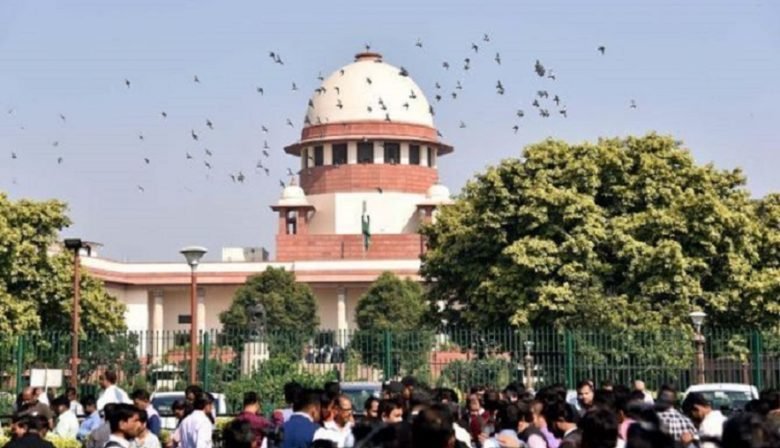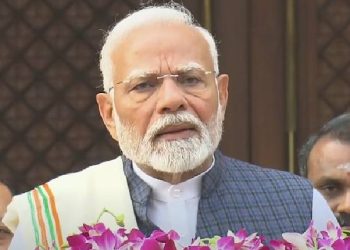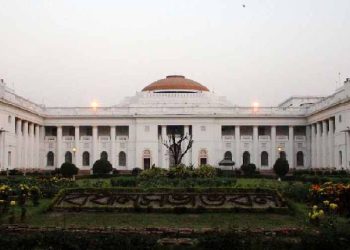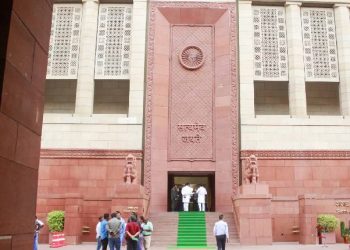New Delhi: The Supreme Court was told on Wednesday that Karnataka government order (GO) disallowing hijab will spell death knell for students desirous to take secular education, and the counsel, representing some of the petitioners further queried what is the degree of discipline affected by allowing someone to wear the hijab?
Senior advocate Huzefa Ahmadi contended before a bench comprising justices Hemant Gupta and Sudhanshu Dhulia that most of the girls wearing hijab come from conservative families and queried what will be the natural fallout of this, and what is the degree of discipline affected by allowing someone to wear the hijab?
He vehemently argued that the state’s legitimate interest is to encourage diversity and not have uniformity in all practices and why should someone feel that someone’s religious observances obstruct secular education or unity?
Ahmadi argued that the state government order against wearing of hijab in schools misunderstands the concept of fraternity, and by prohibiting hijab in schools, the state government has virtually forced Muslim girl students out of school. He added that there was no legitimate interest of the state in imposing a ban. Huzefa said the GO, even if it appears to be neutral, has to be struck down for running foul of Article 14 of the Constitution. “If it targets a particular community,” he said, adding that certain students from a community have broken the stereotype and went to school with a headscarf.
Huzefa emphasised, “The GO will strike a death knell for their (students’) secular education” and contended that disallowing hijab would create barriers for education and fraternity. He said it would go contrary to the principle of fraternity in the preamble of the Constitution, if it is said that hijab would not be allowed.
Citing PUCL report, Ahmadi submitted that several students dropped out of school after the Karnataka High Court judgment on hijab on March 15. However, the top court expressed reservation on the neutrality of the report.
Huzefa said if somebody is being provoked by girls wearing hijab that person should have a sense of brotherhood and fraternity.
Earlier during the day, senior advocate Rajeev Dhavan, representing some petitioners, submitted before the top court that once it was shown that wearing a hijab is a bonafide practice then it was permitted, while citing the apex court’s decision in the Bijoe Emmanuel case. Dhavan said that the conclusion of the Karnataka High Court was puzzling, as it said hijab was not mandatory due to the absence of prescription of penalties.
The bench queried Dhavan that his argument was that the courts were not equipped to decide the matter, and if a dispute arises then which forum will decide it? Dhavan said what was the dispute? Whether hijab was an essential practice? He added that hijab was worn all over the country, and as long as it was bonafide and prevalent, the practice must be allowed and there was no need to refer to the religious text.
On September 12, Senior advocate Yusuf Mucchala, representing petitioners in the hijab ban case, told the Supreme Court that Karnataka High Court faulted by opining wearing of the headscarf is not an essential practice of Islam, since the court had no expertise in the filed suit, it should not have gone into issue whether hijab was an essential religious practice by interpreting the Quran.
The hearing on the petitions challenging the Karnataka High Court’s judgement of March 15 upholding ban on Hijab in pre-university colleges will continue on Thursday.
(IANS)



















